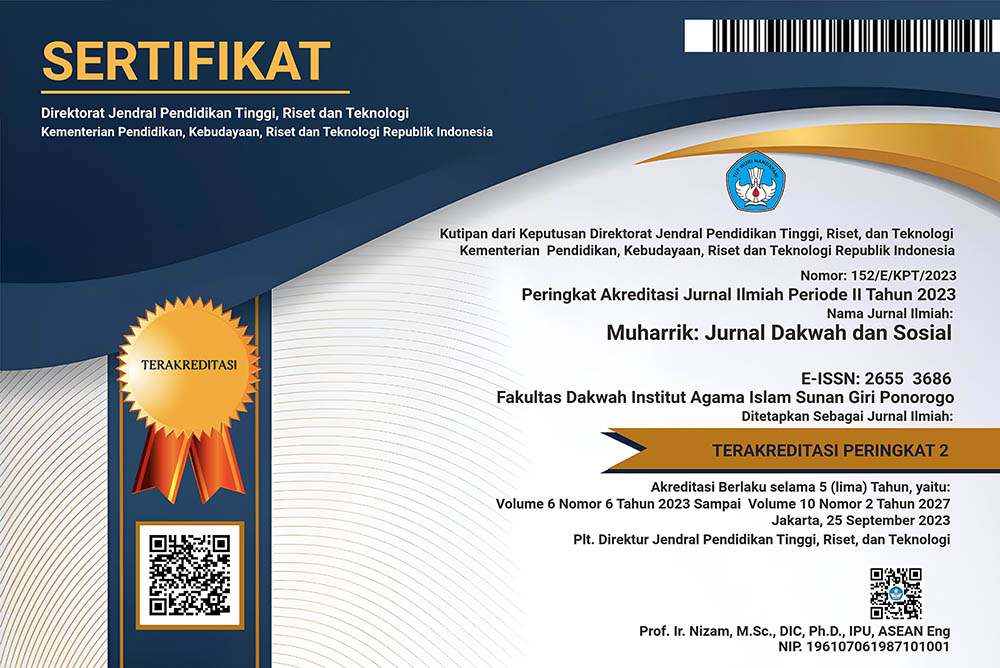Pragmatism over Piety: Understanding Muslim Electoral Choices in East Nusa Tenggara’s Local Elections
Keywords:
muslim voter, political participation, identity politics, minorityAbstract
This article explores the electoral behaviour of Muslim voters in the 2024 Gubernatorial Election of East Nusa Tenggara (NTT), Indonesia. Motivated by concerns over the political marginalisation of Muslim candidates in NTT’s local elections and the wider discourse on minority political participation, the study adopts a voting behaviour framework that integrates sociological, psychological, and rational-choice approaches. It examines how sociocultural backgrounds, religious identity, economic considerations, and political affiliations influence Muslim voting preferences. The analysis also considers the role of historical voting patterns, political party dynamics, and the influence of prominent Islamic figures and organisations. Set in a Christian-majority province, the study investigates the interplay between identity politics, economic rationality, and political pragmatism. Findings suggest that Muslim voters exhibit a nuanced approach to leadership selection, prioritising democratic values, visionary governance, and service-oriented leadership over narrow religious affiliations. Interview data reveal that qualities such as empathy, populism, decisiveness, and moral integrity—particularly a strong anti-corruption stance—are highly valued. Voters also emphasise the importance of political and administrative experience, while viewing intelligence, religiosity, and military credentials as supplementary advantages. Overall, Muslim voters in NTT seek leaders who combine intellectual competence with emotional proximity to the electorate and a deep commitment to public welfare. This research contributes to the broader understanding of minority political agency in Indonesia and highlights the need for more inclusive political frameworks to promote equitable representation and strengthen democratic practices in multi-religious societies.
References
Alam, M. S. (2023). Electoral Participation and Political Choice Among Muslims. . Studies in Indian Politics, 11(1), 1–15.
Arzheimer, K. &. (2019). Christian Religiosity and Voting for West European Radical Right Parties. . West European Politics, 32(5), 985–1011.
Azabar, F. &. (2022). Religiosity and electoral turnout among Muslims in Western Europe. . European Political Science Review, 14(1), 1–24.
Bird, K. S. (2011). The Political Representation of Immigrants and Minorities. . New York : Routledge.
Blais, A. (2000). To Vote or Not to Vote? The Merits and Limits of Rational Choice Theory. Pittsburgh: University of Pittsburgh Press.
Branscombe, N. R. (1999). Perceiving Pervasive Discrimination Among African Americans: Implications for Group Identification and Well-Being. . Journal of Personality and Social Psychology, 77(1), 135–149.
Castle, J. J. (2018). Electoral Choice and Religion: United States. . Oxford Research Encyclopedia of Politics.
Dowley, K. M. (2021). Parties courting Muslim voters in Belgium’s local elections: electoral incentives and ideological tensions. . Local Government Studies, 48(3), 525–545.
Golosov, G. V. (2014). Russia's Muslims and Electoral Participation: A Comparative Analysis of Regional Patterns. . Islam and Christian–Muslim Relations, 25(2), 211–229.
Gueorguiev, D. O. (2018). Ethnic and Religious Sentiments in Indonesian Politics: Evidence from the 2017 Jakarta Gubernatorial Election. Journal of East Asian Studies, 18(3), 1–25.
Heath, O. V. (2015). Do Muslim voters prefer Muslim candidates? Co-religiosity and voting behaviour in India. . Electoral Studies, 38, 10–18.
Kedikli, U. &. (2018). Rising Islamophobic Discourses in Europe and Fight Against Islamophobia on the Basis of International Organizations. . Mediterranean Journal of Social Sciences, 9(1), 9–23.
Klandermans, B. V. (2008). Embeddedness and Identity: How Immigrants Turn Grievances into Action. . American Sociological Review, 73(6), 992–1012.
Lipka, M. (2017). Europe’s Muslim population will continue to grow—but how much depends on migration. Pew Research Center.
Loveland, M. T. (2005). Private Prayer and Civic Involvement. . Journal for the Scientific Study of Religion, 44(1), 1–14.
Maliepaard, M. G. (2015). Islamic Gatherings: Experiences of Discrimination and Religious Affirmation across Established and New Immigrant Communities. . Ethnic and Racial Studies, 38(15), 2635–2651.
Mocan, N. &. (2017). Education, religion, and voter preference in a Muslim country. . Journal of Population Economics, 30(3), 607–638.
Mujani, S. (2020). Religion and Voting Behavior: Evidence from the 2017 Jakarta Gubernatorial Election. . Al-Jami'ah: Journal of Islamic Studies, 58(2), 419–450.
Raymond, C. D. (2018). Electoral Choice and Religion: An Overview. . Oxford Research Encyclopedia of Politics.
Said, M. G. (2021). The Impact of Religion on Voting Behavior. . Humanities & Social Sciences Reviews, 9(2), 14–24.
Downloads
Published
Issue
Section
License
Copyright (c) 2025 Apolonaris Gai, Kushandajani Kushandajani, Laila Kholid Alfirdaus, Nunik Retno Herawati

This work is licensed under a Creative Commons Attribution-NonCommercial 4.0 International License.
The author(s) retain/s the copyright and grant/s Muharrik: Jurnal Dakwah dan Sosial the first publication rights licensed under the Creative Commons Attribution-NonCommercial 4.0 International (CC BY-NC 4.0) , which allows others to access (search, read, download and quote), share (copy and redistribute the material in any media or format) and adapt (mix, modify and develop) works for legitimate non-commercial purposes, with recognition of the authorship of the work and its initial publication in this journal.












